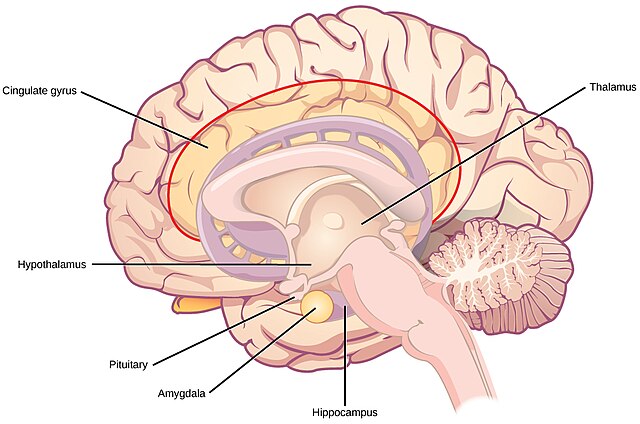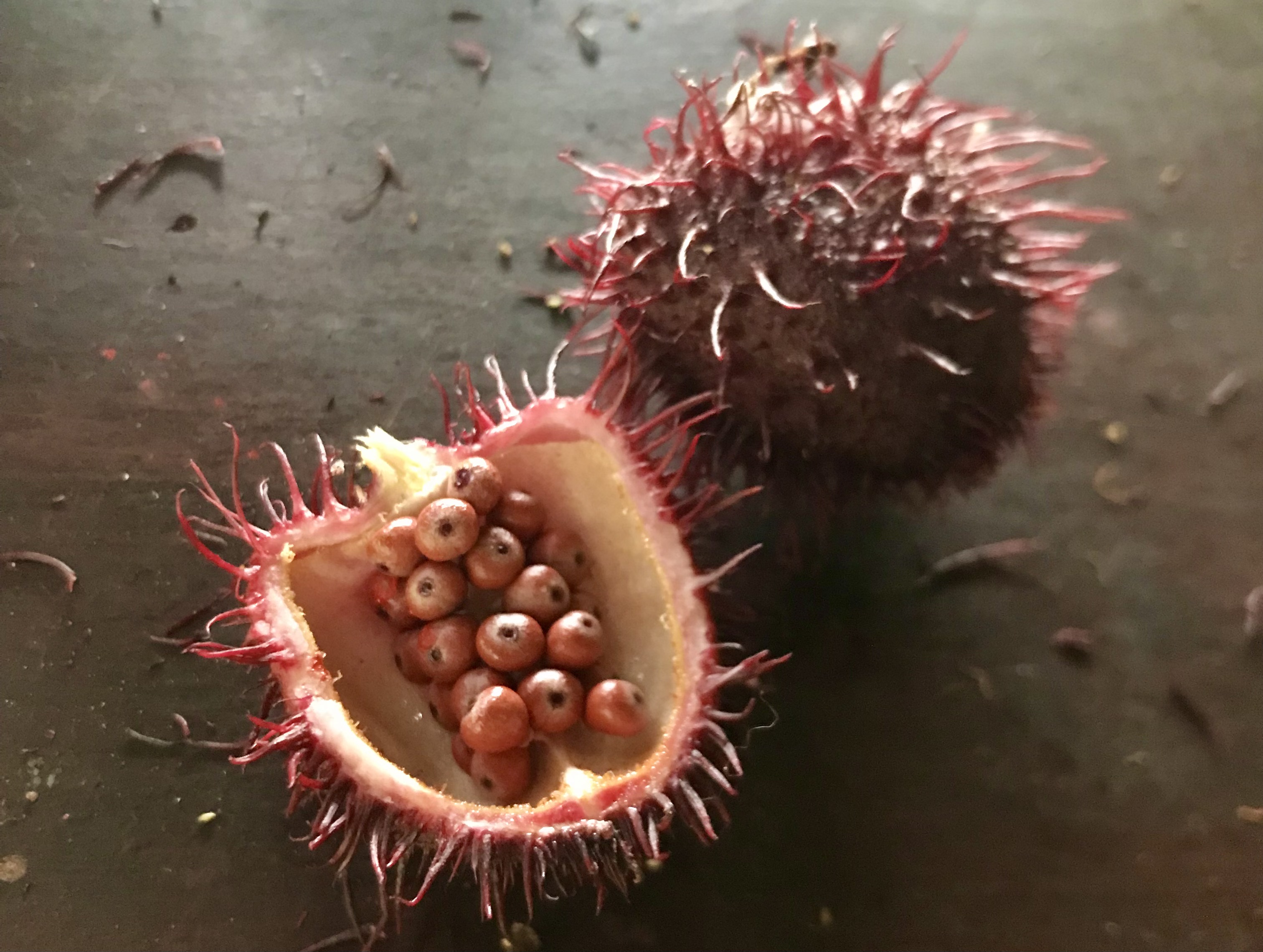Does too much coffee make you feel agitated, or does a lot of sugar make you jumpy or drowsy? If so, then you have firsthand experience proving that food can affect how you feel beyond just feeling satiated, too full, or still hungry. Food affects our mood, our mental and emotional well-being, and eating according to your body's needs can definitely help you become more stress-resilient. But before we dive into this, let's refresh our memory on what happens when we stress.
What is stress?
Humans have been stressing themselves since ancient times. However, the things that trigger our stress may be very different now. We'll get back to this in a bit.
Imagine that, like me, you live in the Amazon rainforest. You are enjoying your morning espresso on the doorstep of your jungle hut when a bird starts screaming its lungs out. Your coffee is still too hot to drink, so you go and check it out. You find the bird and just when you're ready to throw a stick at its head to communicate that you want to enjoy your morning ritual in silence, your eyes notice something moving down at the feet of the trees. It's a panther, and it has seen you too! Before you know it, you are back in your jungle hut, barricading the door, and your espresso is still outside. This is what stress enables us to do: outrun panthers.
What happens in our body?
So, stress is a natural reaction to perceived threats or challenges. In a split second, your body activates the necessary mechanisms that enable you to fight or run. This is what happens inside your body:
Your senses perceive something, and a signal is sent to the amygdala.
The amygdala, also called our brain's smoke detector as it is constantly scanning for threats, sends a message to the hippocampus. This part of your brain holds your memories and compares what you have just perceived with its stored info to know if this is indeed a threat.
When the hippocampus decides you are in danger, it will ring the alarm to the hypothalamus.
The hypothalamus can be seen as our control center. It will start the "Fight-or-Flight" response by activating two systems in your body:
Sympathetic-Adrenal-Medullary (SAM) System
Hypothalamic-Pituitary-Adrenal (HPA) Axis

These are the parts of the brain involved in our stress response. Image by: CNX OpenStax on Wikicommons: https://creativecommons.org/licenses/by/4.0/
SAM System
- Releases adrenaline (epinephrine) and noradrenaline (norepinephrine). These are activating neurotransmitters.
- Readies the body to take action by:
- Increasing heart rate
- Raising blood pressure
- Increasing blood flow to the muscles
- Heightens our focus and alertness
- Makes the liver convert stored glycogen into glucose. Glucose is our energy molecule, so this is done to increase the available energy.
HPA Axis
- The hypothalamus releases corticotropin-releasing factor (CRF).
- The pituitary gland picks that up and responds by releasing adrenocorticotropic hormone (ACTH).
- This reaches the adrenal glands and activates them to produce cortisol.
- Cortisol has many effects, but its importance in a "fight-or-flight" situation is that it can mobilize energy by:
- Promoting protein and fat conversion into glucose that can be used to generate energy
- Redirecting blood to our vital organs like our muscles, heart, and brain
- Suppressing functions that are, in this situation, not essential for survival, like digestion, ovulation, immune responses, etc.
Now you are ready to run!
What if the brain decides we are not in danger?
Then the hippocampus does not does not message the hypothalamus, but instead connects itself to the prefrontal cortex. This is the part of our brain responsible for higher cognitive functions, particularly those involved in decision-making, problem-solving, and emotional regulation.
In stress and fear situations, the brain does not make this connection. This contributes to it being so difficult to think clearly when you are stressed. Your body is filled with activating neurotransmitters, and the system that regulates your feelings is offline. That is why stress can feel so overwhelming.

Modern reality
In real life, I did not encounter a panther that morning; it was actually a snake with a diameter of about my upper arm. I took a picture of it, and locals later confirmed that, though similar to one of the deadliest snakes in the region, this one was harmless. It climbs up in trees to catch birds and mice that it likes to eat.
While reading my story, you may also have noticed that my stress did not start with seeing the snake; it started with that freaking noise of that bird. And this is our modern reality: overloaded with work or school assignments, possibly carrying personal and ancestral trauma, constantly told we're not good enough and don't have enough by ads and social media, stuck in traffic jams and supermarket lines, wanting to buy all the treats next to the counter but not allowing ourselves any. Some of us are always on edge, always slightly, or very stressed. Chronic stress we call this, and the effects of this are a little different from the healthy stress that helps us escape panthers.
The effects of chronic stress
Stress is meant to be acute, a short-term response to infrequent danger situations. Even in the Amazon, you do not encounter panthers daily.
When stress is no longer a short-term affair but a long-term relationship, mainly the HPA Axis remains activated. You stay in a state of heightened vigilance, easily triggered, angry or scared, and it's not a healthy situation. Chronic stress can:
- Disrupt metabolism, immune function, and sleep
- Increase inflammation and contribute to chronic diseases
- Lead to mental health issues like anxiety and depression
- Cause long-term wear on organs and tissues
Let's take a closer look at some of the reasons why chronic stress has these negative effects and how diet can play a role in this.
Higher nutrient demand due to neurotransmitter synthesis
The fight or flight mode is perpetuated mainly by epinephrine, norepinephrine, and cortisol. Next to these activating neurotransmitters, the body also releases extra of the ones that calm us, like GABA, to keep our stress symptoms within limits.
To create these substances, the body needs certain building blocks and tools, for example, the amino acid tyrosine, the minerals zinc and magnesium, and vitamins C and B6. These come from our food and are also needed for the body's business as usual.
Zinc and magnesium support a multitude of processes in the body, from menstruation to mental health. Magnesium also calms us. Vitamin C fights free radicals, and together with Vitamin B6, it also supports skin health. And all of them are also needed to make the neurotransmitters that make us feel happy and fight depression.
Since the synthesis of our stress neurotransmitters steals amounts of these nutrients away from what they should normally be used for, certain of our body's processes may become compromised. If they remain compromised for a long time, it is easier for disease to set in. When you find yourself under stress for a prolonged time, you will thus need extra amounts of these nutrients.
Vitamin C is found in, to name just a few, citrus, berries, kiwi, and bell pepper; B6 in pumpkin seeds, fatty fish, bananas, and chickpeas. Magnesium is found in leafy greens, nuts and seeds, and whole grains. Zinc is not found in high amounts in many foods. Oysters contain a lot of zinc, and then beans, nuts, and seeds are okay sources.
These nutrients thus come from healthy foods; however, here cortisol plays another trick on us...
Cortisol can increase sugar cravings
Research shows that when our cortisol levels are higher, we crave more calorie-rich foods, high in fat and sugar, often also called comfort foods. These foods increase the amount of glucose in the blood. Since glucose is used to create energy, this could be the reason for us craving these foods when under stress: stress requires a lot of energy from us. Though logical as it may seem, when this sugar situation becomes chronic, it doesn't do us much good.
High blood sugar and insulin resistance
Also, sugar cravings aren't the only way by which cortisol elevates our blood sugar levels. To mobilize extra energy, it also promotes the conversion of protein and fat into glucose. Blood sugar levels thus go up even if we don't eat sugary foods. And when blood sugar rises, insulin levels also go up.
Insulin is the hormone that signals cells to absorb glucose from the bloodstream to generate energy. When blood sugar levels remain elevated for a prolonged period, the pancreas will release more insulin. Over time, the body becomes 'bathed' in insulin, and cells gradually become less sensitive to it. We call that insulin resistance. Initially, the pancreas compensates by producing even more insulin. If this persists, cells may become unresponsive to insulin altogether, leading to chronically high blood sugar levels and, eventually, type 2 diabetes.
So although it might be difficult to resist a chocolate muffin when under stress, the above really shows how important healthy food choices are in these challenging situations in our lives. If you get these cravings for sweet things, see if you also feel satisfied with a sweet banana or mango. If you want something fatty, try some guacamole. Avocados contain loads of fat, but they are way healthier than french fries!
It can be tricky to fully comprhend all the workins of insulin. Check out this set of videos by the Khan Academy. I love their easy explanations and drawings!
Increased fat storage and weakened muscles
As we just saw, cortisol increases glucose levels, which raises insulin levels. Insulin not only promotes sugar uptake from the blood into our cells, but it also ensures that excess sugar gets stored as fat. The more sugar, the more that can be stored as fat. The more insulin-resistant our cells become, the more glucose stays in the blood, and the more gets stored as fat.
Not everyone, but many people gain weight when under stress for a long time. Our friend cortisol makes sure that a lot of it gets stored around the waist (visceral fat). Cortisol also ensures that proteins are converted into glucose. The body can decide to break down its own protein-rich tissue, often muscles, to supply this. Fat levels thus go up, and muscles may waste away.
Although it is not good for us to eat too many proteins (in my previous post you can read why), in times of stress it can help to add some healthy proteins to your diet, like quinoa, beans, lentils, fatty fish, or tofu.
Decrease in active thyroid hormones
Fish also provide iodine and selenium, which can support your thyroid. When cortisol levels are high, your thyroid can be impacted too and start to underperform. The conversion of the hormone T4 (thyroxine) into its active form T3 (triiodothyronine) can be reduced. T3 helps us maintain a healthy metabolic rate, and low levels of it can induce hypothyroidism. This slows metabolism, causing fatigue, low energy, and weight gain.
Gaining a bit of weight, of course, is not a problem. Still, we need to make sure not to stray too much from our natural figure and especially to prevent getting close to being overweight.
Increased inflammation
Inflammation is the body's natural response to things like foreign bacteria, damage, and injury. Immune cells, like macrophages, come to the relevant site in the body and basically eat up what is unwanted or broken. Waste gets taken away, and when the site is cleaned, the process of healing and regeneration kicks in.
During stress, the body is very active as extra energy is created. Energy creation also generates some waste and ROS. ROS, reactive oxygen species, are a type of free radical—unstable molecules with an unpaired electron. To stabilize themselves, they try to pair with electrons from other molecules. When they do, they can damage those molecules in the process. We call this oxidative stress, and it contributes to aging and various diseases. The lipid (fatty) parts of our cells are more susceptible to this kind of damage.
When stress is acute, cortisol provides anti-inflammatory actions. However, when our stress becomes chronic, this anti-inflammatory action switches into a pro-inflammatory action.
So, we have more ROS due to more activity in the body. We can have more fatty tissue that is more prone to damage, and we have pro-inflammatory substances in the body. The result can be a constant low-grade level of inflammation in the body, which is not beneficial at all!
Inflammation in the brain and the gut
The brain is comprised of a high amount of fat. Therefore, inflammation can also easily damage the brain. This can interfere with, for example, neurotransmitter signaling. Inflammation can also damage the tight junctions in the gut, making the gut more permeable. This means that substances that normally would not be able to pass through the gut wall now can. When they do, the immune system gets activated and starts up its process of inflammation.
There is then more inflammation close to the gut, which can get upset and send stress signals to the brain: extra stress.
The gut influences mood
When the gut is upset, the microorganisms living in the gut can get out of balance. This can again influence our mood and stress levels, as the bacteria in our intestines influence the creation of neurotransmitters like serotonin and GABA, which help calm us down and provide us feelings of happiness.
This makes it clear that a pro-inflammatory diet (rich in processed foods, a lot of meat, dairy, and wheat) can make the situation worse during stressful periods. An anti-inflammatory diet would be much more beneficial. Some examples of anti-inflammatory foods are turmeric, ginger, garlic, cinnamon, leafy greens, and fruits.

These are Achiote seeds. Achiote (or annatto, from the seeds of Bixa orellana) also has anti-inflammatory properties. Traditionally, the seeds and leaves have been used in natural medicine to reduce inflammation, especially in the skin, liver, and digestive system. Recently I have been peeling open half a bucket of these seeds, to make lipsticks out of them.
Bringing it all together into a diet plan
The following, of course, is general advice. Though we are all human, we are also all slightly different. For the best results, you need a diet tailored to your body's specific needs. Feel free to reach out to me if you would like such a plan. Here are some tips that can already help you feel better in stressful times:
- When cravings for sweet or fatty foods arise, try to opt for healthy versions of them (at least most of the time): bananas, mangos, strawberries, dried fruits, avocados, nuts, fatty fish.
- Increase your protein intake a little bit. Add an extra serving of fish to your diet, add whole grains, and include lentils, chickpeas, tofu, quinoa.
- Add foods that support your thyroid, like fatty fish, oysters, pumpkin seeds, nuts, leafy greens, and fruits.
- Replace pro-inflammatory foods with better options. Eat less meat and more pulses, quinoa, tofu, and healthy fish. Eat fewer processed foods (donuts, sausages, canned veggies, ice cream) and more fresh veggies and fruits, and whole grains. Eat less dairy, and try making some vegan cheese. Eat less wheat and more oats, buckwheat, rice, and quinoa.
- Add anti-inflammatory foods to your diet. In addition to the ones already mentioned, you can also include sweet potatoes, brussels sprouts, green tea, rosemary, or basil.
- Brain support: In stressful situations, your brain can definitely need some help. The brain loves healthy fats and antioxidants, and needs all the nutrients that the rest of your body needs. It can also benefit from some non-dietary help.
Stress management
Changing your diet helps you mitigate the negative effects stress can have on your body and mind. It does, however, not resolve any life situations that may be causing your stress. Depending on what triggered it, you may either need to just go through a certain temporary situation, change something in your life, or adjust the way you handle things. For all these scenarios, it can really help to seek someone's support. And I am not solely referring to therapists. Friends, life coaches, financial advisors, and even someone who cleans your house every week can perform miracles in your life too!
In addition, there are simple therapies you can perform yourself that can bring real benefits. I am referring to TRE and EFT, for example, which both really saved my life. In the future, I'll discuss these in more detail. For now, I will leave you with their websites.
In the next post, we'll be looking at foods that can boost your mood.
Tre: https://traumaprevention.com
EFT: https://eftinternational.org
"You are braver than you believe, stronger than you seem, and smarter than you think."
Winnie the Pooh
http://www.seedsofhealth.net/medical-disclaimer/
Sources:
https://pmc.ncbi.nlm.nih.gov/articles/PMC7468813/
https://pmc.ncbi.nlm.nih.gov/articles/PMC7781050/
https://www.mdpi.com/2072-6643/14/5/1045
Briguglio M, Dell'Osso B, Panzica G, Malgaroli A, Banfi G, Zanaboni Dina C, Galentino R, Porta M. Dietary Neurotransmitters: A Narrative Review on Current Knowledge. Nutrients. 2018 May 10;10(5):591. doi: 10.3390/nu10050591. PMID: 29748506; PMCID: PMC5986471.
https://foodasmedicineinstitute.com/2024-food-as-medicine-symposium/